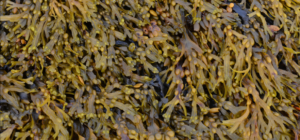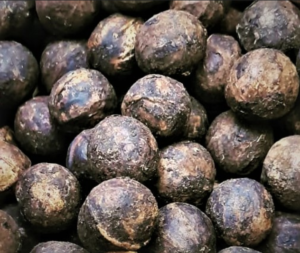We have covered various types of seaweed before such as bladderwrack. Today we have brought yet another lesser-known seaweed that has excellent benefits. Dulse seaweed is scientifically known as Palmaria palmata. It has been a staple in various coastal cultures for centuries. Historically, it was a vital food source for inhabitants of coastal regions such as Ireland, Scotland, and parts of Canada. Native Americans along the Pacific Northwest coast also utilized dulse as a nutritious dietary component. This nutrient-rich seaweed has not only sustained communities but also garnered attention worldwide for its health benefits and culinary versatility. In this article, we will delve into the numerous benefits of dulse seaweed.
Nutritional Value of Dulse Seaweed

Dulse seaweed is well known for its exceptional nutritional profile. It is rich in essential vitamins, minerals, and antioxidants. It is notably rich in vitamins B6, B12, C, and E, as well as iodine, potassium, magnesium, and iron. In addition to that, dulse contains significant levels of protein and dietary fiber, making it a valuable addition to a balanced diet.
Health Benefits of Consuming Dulse Seaweed
1. Cardiovascular Health
The high potassium content in dulse seaweed supports heart health by helping to regulate blood pressure levels. Potassium acts as a vasodilator which promotes healthy blood flow and reduces the risk of hypertension and cardiovascular diseases.
2. Thyroid Function
Dulse seaweed is an excellent natural source of iodine and is a crucial mineral for thyroid function. Adequate iodine intake is essential for the production of thyroid hormones, which play a key role in metabolism, energy regulation, and overall hormonal balance.
3. Antioxidant Properties
Rich in antioxidants such as vitamins C and E, dulse seaweed helps combat oxidative stress and neutralize harmful free radicals in the body[1]. These antioxidants contribute to cellular health, reduce inflammation, and may lower the risk of chronic diseases like cancer and diabetes.
4. Bone Health
The calcium and magnesium content in dulse seaweed supports bone density and strength. This promotes overall bone health and reduces the risk of osteoporosis and bone fractures, particularly in aging populations.
5. Digestive Health
Dulse seaweed is a good source of dietary fiber which aids in digestion and promotes gastrointestinal health. The fiber helps regulate bowel movements, prevents constipation, and supports the growth of beneficial gut bacteria, enhancing overall digestive function.
Dulse Seaweed Recipies

Beyond its nutritional benefits, dulse seaweed offers culinary versatility, adding flavor, texture, and nutritional value to various dishes. It can be enjoyed raw, dried, or cooked and is commonly used in salads, soups, stews, and stir-fries. Here are a few dulse seaweed recipes to try:
- Dulse Seaweed Salad: Combine fresh dulse seaweed with cucumber, cherry tomatoes, red onion, and a tangy vinaigrette dressing for a refreshing and nutritious salad.
- Dulse Seaweed Stir-Fry: Sauté dulse seaweed with colorful bell peppers, broccoli, carrots, and tofu or shrimp in a savory soy sauce and garlic marinade for a quick and flavorful stir-fry.
- Dulse Seaweed Soup: Add dried dulse seaweed to a hearty vegetable or miso soup for an added depth of flavor and a boost of vitamins and minerals.
- Dulse Seaweed Wraps: Use blanched dulse seaweed leaves as a nutritious alternative to traditional tortillas or wraps. Fill them with avocado, quinoa, shredded vegetables, and your choice of protein for a light and satisfying meal.
- Dulse Seaweed Chips: Coat dulse seaweed strips with olive oil, season with sea salt and spices of your choice, and bake until crispy for a nutritious and crunchy snack.
Environmental Sustainability and Ethical Considerations

Consuming dulse seaweed aligns with the principles of environmental sustainability. Unlike land-based agriculture, seaweed cultivation requires no freshwater, arable land, or fertilizers. This minimizes environmental impact and reduces pressure on terrestrial ecosystems. Furthermore, seaweed farming can help mitigate ocean acidification and eutrophication by absorbing excess carbon dioxide and nutrients from seawater. All of this promotes marine biodiversity and ecosystem resilience.
Conclusion
In conclusion, the numerous benefits of dulse seaweed extend beyond personal health and culinary enjoyment. By incorporating dulse into your diet, you not only nourish your bodies with essential nutrients but also support sustainable food systems. By adding dulse to your diet, you support sustainable food systems. Have you tried dulse seaweed? Share your experience with us, or give it a try if you haven’t already.





